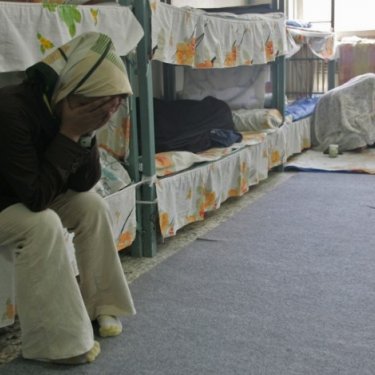Detained journalists threatened by spread of coronavirus in Iran’s prisons

Reporters Without Borders (RSF) is extremely concerned about Iran’s imprisoned journalists, who are denied proper medical care at the best of times and who now risk dying from the coronavirus that is spreading in the country’s prisons.
After China, Iran is one of the countries with the highest death toll from the coronavirus epidemic. According to the latest official figures, the virus has killed at least 92 people and infected 2,922 in Iran.
There are no official figures for the spread of the coronavirus in Iran’s prisons, but the families of detainees say there are many cases. The Islamic Republic is like China in concealing information about both the spread of the virus and its mistreatment of political prisoners.
As the spread of the virus was beginning to assume alarming proportions in Iran on 26 February, judicial authority chief Ebrahim Raissi issued orders to reduce new arrests to the minimum in order to avoid increasing the prison population. He also gave the go-ahead for more temporary releases.
However, the possibility of temporary release under this special measure is denied to those serving sentences of more than five years for “acting against national security.” This is the case with most of the journalists currently detained, who will therefore continue to be held as the coronavirus takes its toll on the prison population.
The families of some political prisoners have published an open letter calling on the authorities to either free them or at least grant them provisional leave until the epidemic is over.
Hengameh Shahidi, a journalist who has been jailed for the past two years and is serving a 12-year sentence, has probably been infected and has reportedly been transferred to the infirmary in Tehran’s Evin prison, her lawyer says.
Faeze Abdipour, the wife of Mohammahd Sharrifi Moghadam, one of the imprisoned members of the editorial staff of the Sufi community news website Majzooban Noor, has voiced her concern about him on Twitter. “Mohammad has been sentenced to seven years in prison and, according to the law, must serve five years. But, after being held for 743 days, he has not been granted a single day of the furlough stipulated by the law.” Six other detained members of the Majzooban Noor editorial staff are in the same situation.
Instead of being released, some journalists are being subjected to additional judicial persecution. Journalists and human rights defender Narges Mohammadi has been arbitrarily transferred from Tehran prison to a prison in the northern city of Zanjan, where she is to appear before a local court on a charge of “conspiracy against national security” for writing letters condemning the bloody crackdown on protests in November 2019. The prison’s director has also filed a complaint accusing her of defamation and stirring up unrest inside the prison.
“We are extremely concerned about the health of these prisoners, who should be freed or at least granted a provisional release for as long as the epidemic lasts.” said Reza Moini, the head of RSF’s Iran/Afghanistan desk. “Under the International Covenant on Civil and Political Rights, to which Iran is party, the denial of medical care constitutes a violation of the ban on torture and on cruel, inhuman or degrading treatment.”
Iran is ranked 170th out of 180 countries in RSF’s 2019 World Press Freedom Index.



